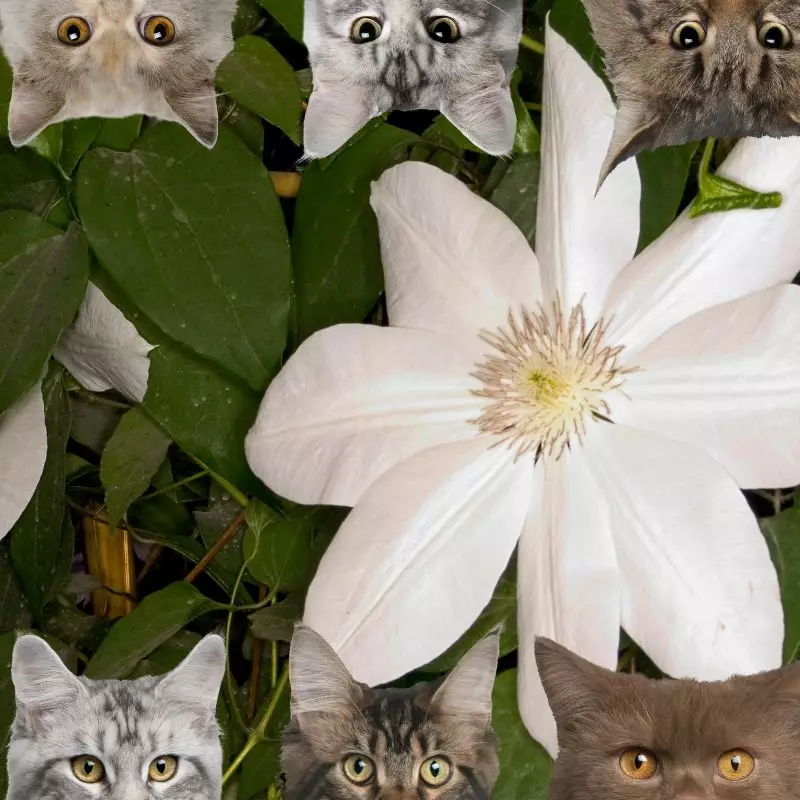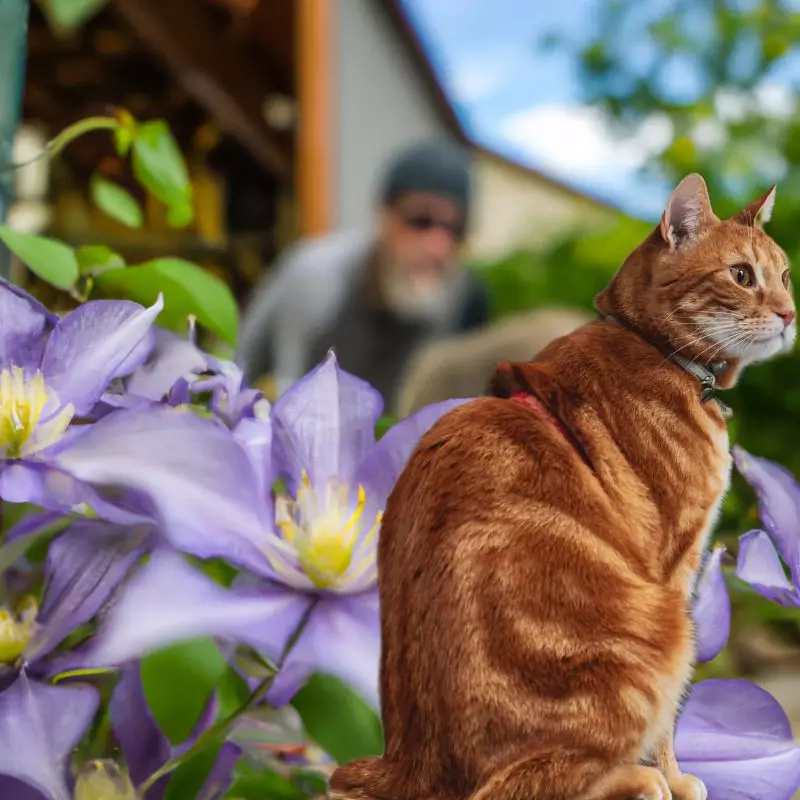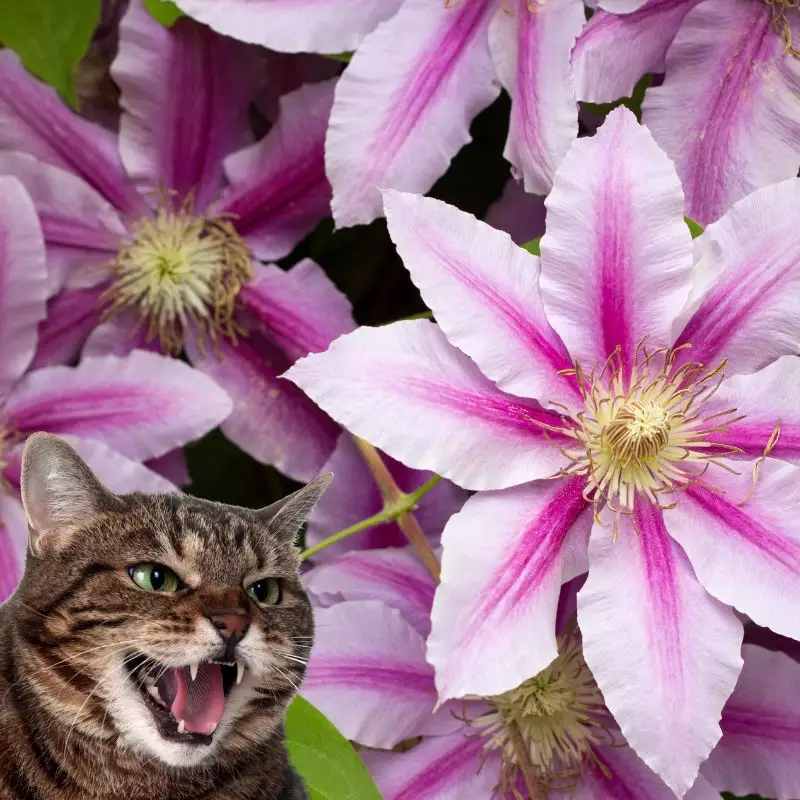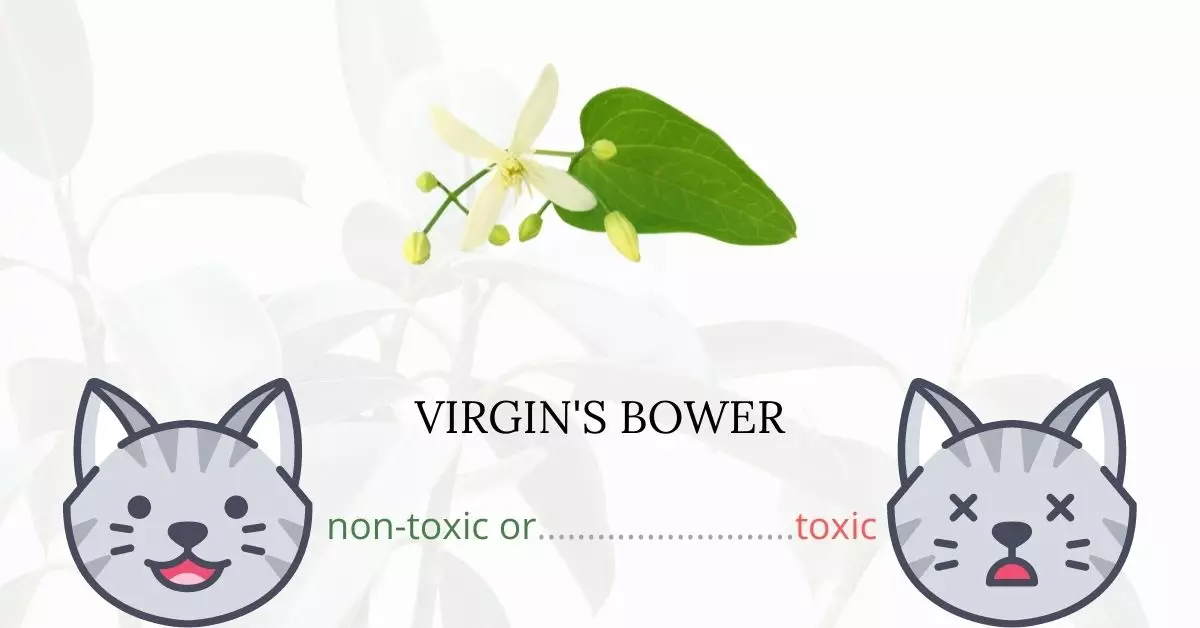Virgin’s Bower, with its intricate flowers, sap, leaves, and seeds, is indeed toxic to cats, posing a significant risk to their health. The plant is laden with a variety of toxins, including irritating glycosides like helleborein, helleborin, and hellebrin, as well as protoanemonin toxins. Each part of the plant contains harmful substances, with the newest leaves housing the highest concentration of toxins. Exposure to the sap can lead to severe skin irritation or burning, and the glycosides, upon digestion, lose their sugar molecules, transforming into toxic compounds.
This article has been meticulously compiled in collaboration with a team of seasoned Doctors of Veterinary Medicine (DVMs) whose invaluable insights and expertise have enabled us to present precise and current information on the potential hazards Virgin’s Bower presents to cats. Our exploration is not just limited to professional insights; we have also researched high-authority websites such as ASPCA and PetMD to bring comprehensive and trustworthy information about every plant discussed, ensuring the well-being and safety of your feline friends.
Clinical Signs of Virgin’s Bower Poisoning in Cats

When a cat comes into contact with, smells, or ingests Virgin’s Bower, it can experience a range of clinical signs due to the presence of toxic compounds like irritating glycosides and protoanemonin toxins found in the plant’s juices. These toxins lead to painful internal and external burning upon contact. Here’s a detailed exploration of each symptom and its cause:
- Nausea, Vomiting, and Diarrhea: These are typical responses to ingesting toxins, as the body attempts to expel the harmful substances. They are usually indicative of gastrointestinal distress caused by the irritation and inflammation of the digestive tract.
- Excessive Drooling: This occurs due to the body’s reaction to the irritant, producing more saliva to try and flush out the toxins from the mouth.
- Abdominal Pain: The internal burning and irritation from the toxins in the plant lead to discomfort and pain in the abdomen.
- Dermatitis and Skin Blisters: Contact with the plant’s sap causes skin irritation, leading to inflammation and, potentially, blistering of the skin due to its caustic nature.
- Mouth Blisters: The harmful substances in Virgin’s Bower cause oral irritation and can lead to the formation of painful blisters inside the mouth.
- Weakness: Due to the body’s response to the toxins, affected cats may exhibit a general state of weakness and lethargy.
- Aggression and Delirium: The discomfort and pain caused by the poisoning can lead to behavioral changes, including aggression and a state of confusion or delirium.
- Bradycardia: The toxins can affect the cat’s cardiovascular system, potentially leading to a slowed heartbeat, which can be dangerous if not addressed promptly.
- Dyspnea: Difficulty in breathing, or dyspnea, can result due to the body’s systemic response to the ingested toxins, affecting the respiratory system.
- Convulsions: In severe cases of poisoning, neurological impacts such as convulsions may occur due to the effect of toxins on the brain.
Even mild poisonings predominantly lead to gastrointestinal problems, but it is crucial to note that severe poisonings can escalate quickly and can be fatal if left untreated. Immediate veterinary attention is essential upon noticing any of these symptoms to initiate proper care and treatment, thus mitigating the effects of the toxins.
First Aid and Treatment of Virgin’s Bower Poisoning in Cats

The cat will likely respond well to basic treatment if only a tiny bit of the virgin’s bower plant has been consumed. If a substantial amount of food has been consumed, hospitalization may be required.
Emesis using hydrogen peroxide or gastric lavage can be used to empty the stomach contents (stomach pumping), this is to get rid of any undigested plant matter so the body could stop processing more toxins. Demulcent substances that calm the stomach, such as glycerin, honey, or pectin, can aid to relieve irritation in internal membranes. Atropine can be given orally or intravenously to a cat whose blood pressure has dropped dangerously low while the heart is monitored.
Recovery from Virgin’s Bower Poisoning in Cats

Because most cats can only eat a small amount of the plant, the vast majority of them will recover completely within 24 hours. If your cat consumes too much plant matter, he could suffer chronic heart and kidney damage, as well as lung paralysis and death. In a cat struggling from virgin’s bower poisoning, seeking treatment as soon as possible may boost the chances of survival.
Prevention of Virgin’s Bower Poisoning in Cats
Virgin’s bower can be found in both gardens and the wild, posing a threat to any outdoor cat. Keeping your cat indoors prevents it from coming into contact with virgin’s bower or other harmful plants. As a precaution, some may choose to remove the plant from their garden.
If you love plants but have cats at home, check out these lists:





